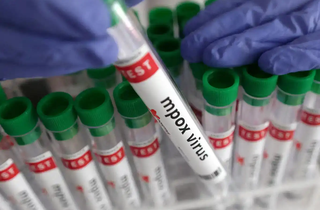The U.K. Health Security Agency (UKHSA) announced that two individuals, both household contacts of the country's initial mpox case discovered last week, have tested positive for the variant, bringing the total confirmed cases in the U.K. to three.
The WHO has issued a warning urging European nations to be prepared for "rapid action" to contain the spread of this new mpox strain, which is transmitted through close physical contact, including sexual activity and sharing enclosed spaces. The cases in the U.K. are the first instances of locally transmitted mpox outside of Africa since August 2024, when the WHO declared the outbreak of the new variant an international public health emergency.
The original case in the U.K. was linked to travel. The affected individual had visited several African countries and returned to the U.K. on October 21. After developing flu-like symptoms the following day, the patient developed a rash, which worsened in the following days.
According to UKHSA, the patients are receiving specialized care, and the overall risk to the general public remains low.
Mpox, a viral disease related to smallpox, has two main strains: clade 1 and clade 2. Symptoms include fever, a rash or pus-filled blisters, swollen lymph nodes, and body aches.
In 2022, the WHO declared a public health emergency after a significant outbreak of clade 2, which primarily affected gay and bisexual men in Europe and the U.S. While vaccination and awareness campaigns helped reduce cases globally, the WHO lifted the emergency declaration in May 2023 after reporting 140 deaths out of approximately 87,400 cases.
In 2024, a dual epidemic of clade 1 and the new clade 1b strain has spread widely in the Democratic Republic of Congo, with cases also reported in neighboring Burundi, Kenya, Rwanda, and Uganda. Imported cases have been confirmed in Sweden, India, Thailand, Germany, and the U.K. (ILKHA)



 Dünya
Dünya
 Dünya
Dünya
 Güncel
Güncel
 Güncel
Güncel
 Dünya
Dünya
 Dünya
Dünya
 Dünya
Dünya
 Dünya
Dünya
 Dünya
Dünya
 Dünya
Dünya





